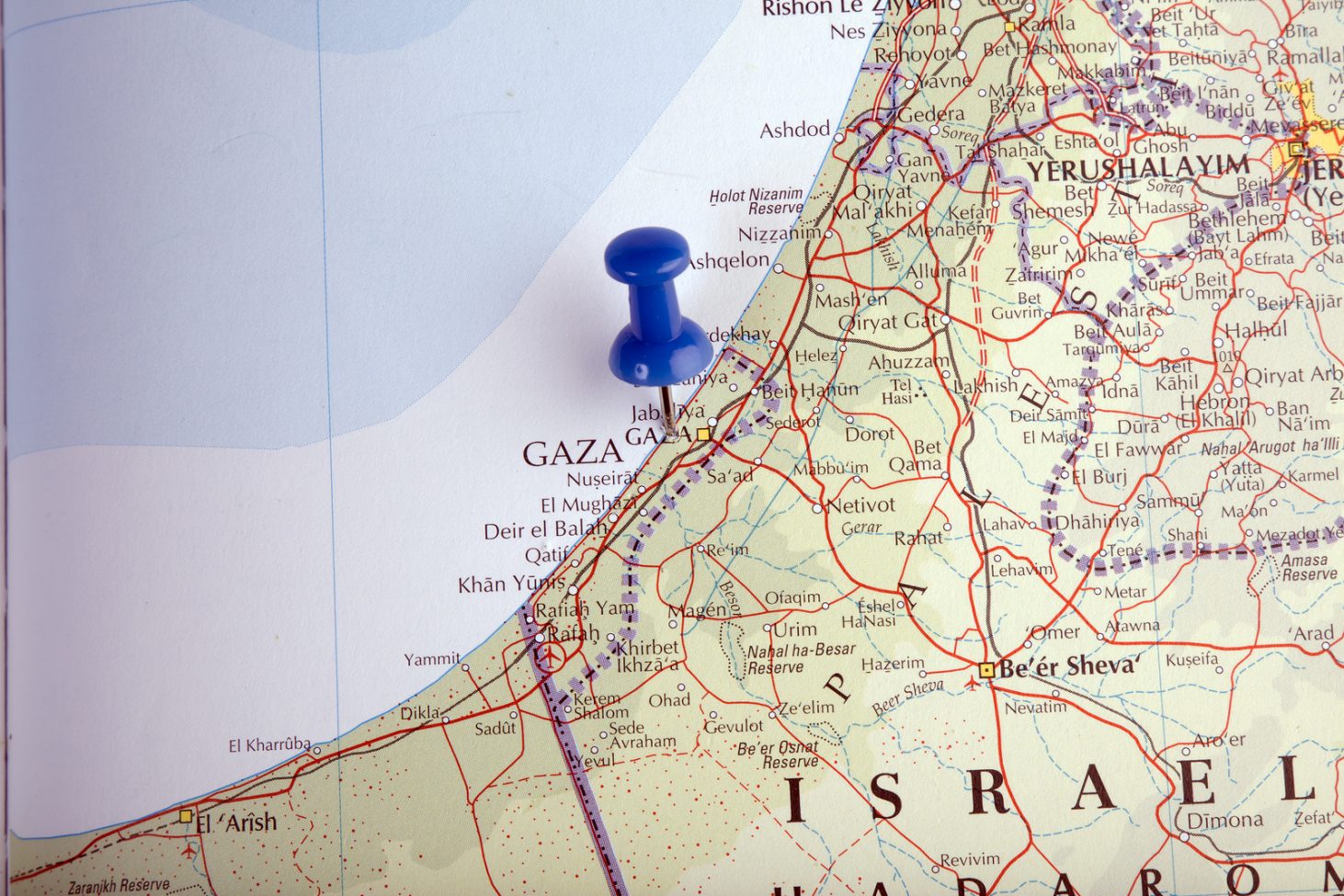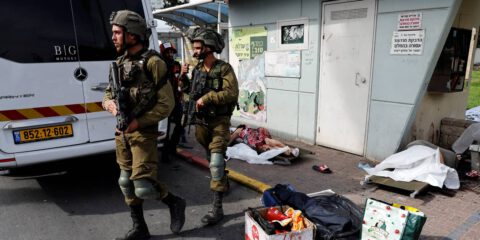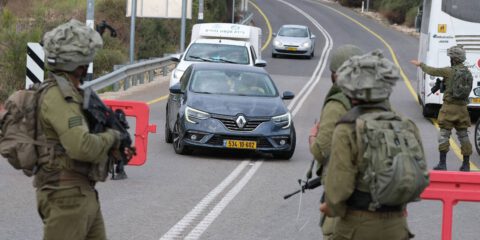Israel’s actions (or at times, inaction) concerning the future of the Gaza Strip cannot be isolated from the broader context of the struggle over the entire region’s balance of power. Gaza’s dependence on Egypt, and perhaps Cyprus, constitutes a common interest of the “camp of stability” in the Middle East, to curb the influence of both Turkey and Iran, and to deny Abu Mazen the baneful position of a spoiler.
At the beginning of his book on the Indirect Approach, Sir Basil Liddell Hart chose to quote Byzantine General Flavius Belisarius, who brought the Byzantine Empire to the peak of its power in the 6th century, to the effect that the most complete and happiest victory is forcing your enemy to abandon his objective, while your side does not suffer. If the aim of the organizations referred to as jihadi – such as the Hamas movement, the Palestinian Islamic Jihad, and Hezbollah in Lebanon – is to conduct a campaign against the Zionist project until it is defeated, then measures causing them to abandon this, even if only for extended periods, constitute an Israeli victory (although Israel has been suffering from the impact of their provocations in recent months, the outcome would still be strategically skewed in her favor). If arrangements are made under which there is no fighting or provocations for a prolonged period, and the balance of deterrence is restored, this would undermine, over time, the legitimacy of these forces and highlight Israel’s resilience and the advantages of her superior force. In the long run, this result also serves the interests of additional forces in the Middle East and Eastern Mediterranean, including Egypt, Cyprus, and Greece, which have an interest in political stability and in countering the influence of the Islamists backed by Iran and/or Turkey.
The earlier instances of empty arrogance on the part of Yahya Sinwar, reminiscent of forgotten 1960s overblown Arab rhetoric (since Hamas will not be able to bombard Israel with missiles for six months, or even six weeks) have since then given place to a different language, which recognizes the futility of war. Both bursts of bluster and bids for a ceasefire indicate a pressing need to deter or avoid an all-out conflict, translated into a systematic effort, under Egyptian auspices, to reach long-term understandings. This policy is based on the realization that only such an “arrangement” can provide a measure of relief in the distress of the Gaza Strip population for whose fate Hamas has taken responsibility. Hamas’ pretensions to be the ruling power of all Palestinians, when the time comes, oblige them to be attentive to people’s needs.
At first glance, any relief given to Hamas under these circumstances – especially a plan that includes a future marine route that can be portrayed as “removal of the siege” – can be portrayed as an achievement for Hamas’s violent policy since March 2018. The Hamas leadership in the Gaza Strip will certainly use this argument and claim “victory”. Nevertheless, the willingness of Egypt, the Israeli government (despite disputes about specific modes of action), and possibly also Cyprus and Greece – who proposed similar ideas years ago, following the Mavi Marmara crisis – to consider options of this type are not a reflection of weakness against terrorism – even if that is how it appears: it is the result of a well thought out long-term strategic calculation.
Despite its frenzied rhetoric, there is a growing impression that Hamas is willing, in the framework of the proposed measure, to end the assaults on the fence and the kite terrorism and to implement a lull in order to attain a measure of relief in the economic situation of Gazans. This does not mean a grandiose “Marshall Plan,” but individual solutions to problems of employment, the supply of water and electricity, and some exports of goods. It is important to continue showing the population in Gaza and the entire region that Hamas rule comes at a price. At the same time, increasing flexibility can be shown the longer the lull continues, and the question of a marine route can also be addressed later. In this plan, Hamas is conceding its substantive and strategic aim – the holy jihad struggle – while only tactical adjustments are required from Israel. The argument that this “buy time for Hamas to rearm” ignores the fact that the supply routes to Hamas will be subject to tight supervision, while at the same time, the IDF with its vast resources is becoming stronger and actively accelerating all elements of its response (including building its capability for a rapid and effective ground maneuver, in contrast to the situation that prevailed in 2006 and even in 2014).
Furthermore, it is right to also assess the price and benefit of measures taken in Gaza in the regional context. Were it capable of doing so, the Egyptian regime, which detests the Muslim Brotherhood movement (many of whose leaders were recently sentenced to death, although it is doubtful whether they will actually be executed), would put an end to Hamas’s rule in Gaza, because Hamas, despite its efforts at disavowal, is a blood brother of the Muslim Brotherhood. At the same time, during the five years since Morsi was overthrown, the Egyptian leadership has come to realize that it is better to contain and “humiliate” Hamas’s leadership and gradually whittle away its legitimacy than to try to get rid of it by force – which in any case is impractical (because Israel will not accept a major Egyptian military presence close to the Israeli heartland, and without such a presence, no external force can rule in Gaza).
The preferable alternative – heightening the dependence of the regime in Gaza on its Egyptian neighbors – well serves the interests of the “stability camp” in the Middle East that is making a common stand (despite some internal tension) against the forces of diverse variations of totalitarian Islamism. The level of coordination and cooperation between Jerusalem and Cairo makes it possible to maintain Israel’s security interest. Subject to extremely rigorous security control, consideration can be given to a scenario in which Cyprus enters the picture, backed by the Greek fleet, to safeguard the proposed sailing route. The political-strategic dimension will be to curb Turkey and puncture Erdogan’s pretensions to regional leadership – in which Israel has a great interest from a long-term perspective.
The proposed measure incurs three potential risk factors that require careful and wise handling. The first is the need to bring back to Israel the bodies of the two soldiers, Goldin and Shaul, and the two civilians that crossed the border (of their own volition) and are being held by Hamas. It is important to uproot from Hamas’s consciousness the expectation that Israel will again be extorted as it was in the Shalit affair. It is also important that this question, with all of its emotional power, not be the sole consideration in a measure of strategic significance.
The second threat is likely to come from rebellious groups in Gaza, especially the Palestinian Islamic Jihad (PIJ), which has a military branch in Gaza and is liable to resort to large-scale violent provocations, should this be the wish of its patron in Tehran. The Egyptians will have to make it unmistakably clear to Hamas that a lull agreement requires active enforcement of the arrangement against PIJ and other rebellious groups.
The third difficulty, and the main one at this stage, results from the cruel use Abu Mazen is making of legal authority – a vestige of the situation that prevailed before 2007 – in order to thwart economic relief for the population as long as the Palestinian Authority and Fatah have not regained control of the Gaza Strip. The same Dr. Jekyll/President Abbas who is showing cooperation, moderation, and largeness of spirit to his guests from the Israeli left is behaving like Mr. Hyde/Fatah functionary Abu Mazen by holding the entire population of the Gaza Strip hostage until he obtains his objectives. To some extent, the punitive measures that the Trump administration is taking towards him are a response to his behavior on this and other issues. Under these circumstances, it is possible that there will be no alternative to finding bypass mechanisms that will make it possible to carry out the relief measures, even if the “reconciliation talks” in Cairo remain deadlocked (as expected).
It should be noted that overcoming both this obstacle and the short-term consequences of the cut in American aid to UNRWA requires one measure liable to create a rift in the joint stance against the Muslim Brotherhood camp. This is reliance on Qatar as a source of financing for a (long?) transition period, if Egypt, Israel’s strategic partner for the entire maneuver, is willing to go along with it. This is not an ideal situation, given the tension between Saudi Arabia and the other Gulf states that are members of the stability camp on the one hand and Qatar on the other. Furthermore, both Egypt and Israel have been the repeated targets of incitement by Al Jazeera under the sponsorship of the regime in Doha.
Nevertheless, for as long as Egypt maintains the status of “chief executive officer” in these measures and Qatar (anxious to prove its presence as a political player) is willing to accept the role of “chief financial officer,” a degree of tactical flexibility is in order. It is better to avoid giving Hamas the possibility of manipulating a “humanitarian crisis” that will arouse international pressure and jeopardize the entire plan.
JISS Policy Papers are published through the generosity of the Greg Rosshandler Family.
photo: Bigstock








 - בניית אתרים
- בניית אתרים